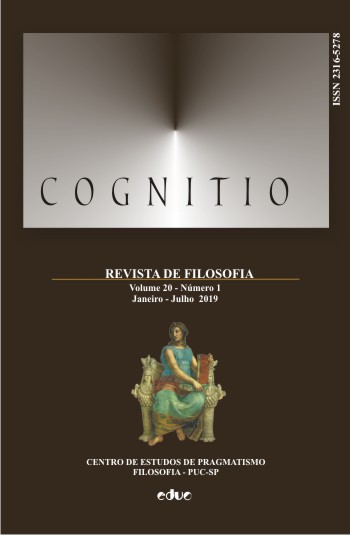Reality, language and non-cognitivism in Wittgenstein
DOI:
https://doi.org/10.23925/2316-5278.2019v20i1p123-136Keywords:
Blackburn, Metaethics, Non-cognitivism, Quasi-realism, Wittgenstein.Abstract
This article analyzes how, from Wittgenstein’s position in relation to ethics, it is not possible to derive a non-cognitivist posture as intended, for example, by Simon Blackburn’s quasi-realism. Firstly the consequences of the interpretation in relation to the existence of moral propositions are rebuilt; then we argue that there is a misconception in how the dichotomy between facts and values is understood. Lastly we point out that on the one hand the Viennese philosopher refuses a Platonic perspective on the rules, and on the other hand the thesis that there are no objective rules. The rules consist of an intersubjective expression shared by the form of life, a diametrically opposite argument to the quasi-realist non-cognitivism of Blackburn.Downloads
Published
2019-09-10
How to Cite
Peruzzo Júnior, L. (2019). Reality, language and non-cognitivism in Wittgenstein. Cognitio: Revista De Filosofia, 20(1), 123–136. https://doi.org/10.23925/2316-5278.2019v20i1p123-136
Issue
Section
Cognitio Papers









